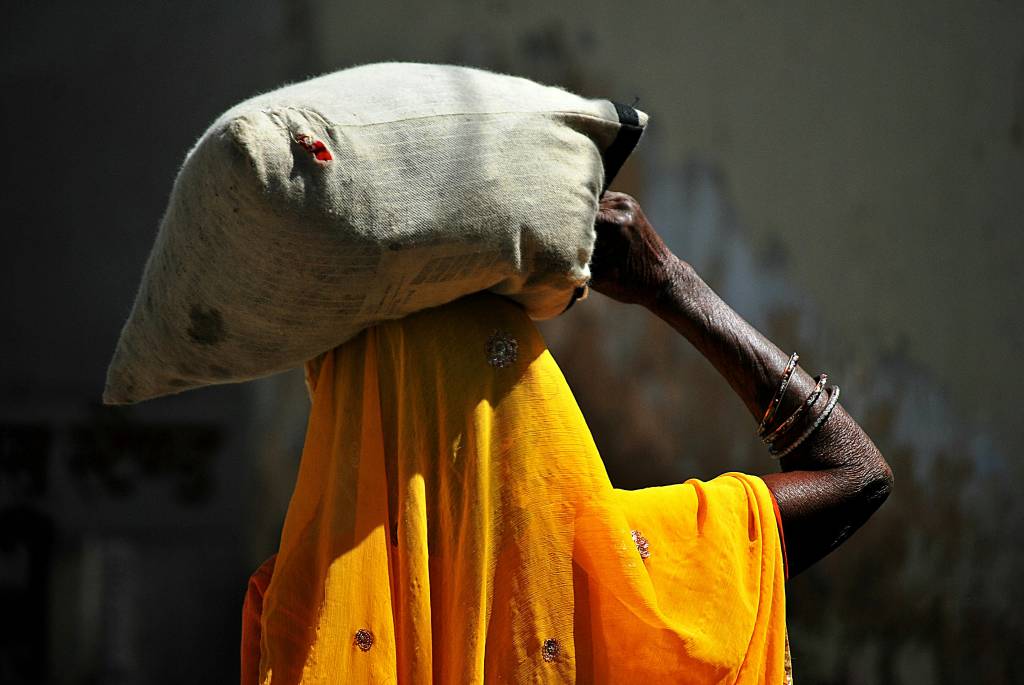By the West African Civil Society Forum (WACSOF)
As the world converges in Baku for COP 29, the urgency of addressing climate change has never been more apparent. For regions like West Africa—where the impacts of climate change are already being felt in the form of rising temperatures, unpredictable rainfall, desertification, and floods—the need for meaningful and accessible climate finance has become a defining issue.
At COP 29, the global community must not only reaffirm its commitment to combat climate change but also ensure that the financial resources needed to support a just and green transition are available, equitable, and accessible to the most vulnerable regions. West Africa stands at a pivotal moment, with both a significant opportunity to leapfrog to green growth and the imperative to address its pressing climate vulnerabilities. But for this transition to become a reality, West Africa needs climate finance—now more than ever.
The Climate Challenge in West Africa
West Africa is one of the most climate-vulnerable regions in the world. The Sahel, in particular, is experiencing severe desertification, while coastal countries face the threat of rising sea levels. Agriculture, which is the lifeblood of many West African economies, is under immense pressure due to unpredictable weather patterns and increasing temperatures. From droughts in the north to flooding in the south, climate change is already deepening existing vulnerabilities, exacerbating poverty, and putting the future of millions of people at risk.
At the same time, West Africa has an enormous potential to lead in the transition to a green, sustainable economy. The region is rich in renewable energy resources, from solar in the Sahel to wind along the coast, and hydropower in many countries. The green transition offers the chance to create jobs, improve food security, and reduce the region’s reliance on fossil fuels. But this transformation will not happen without significant investments.
The Need for Climate Finance

1. Financing Adaptation and Resilience:
West African countries need substantial investments to adapt to the inevitable impacts of climate change. This includes financing for climate-resilient infrastructure, such as flood barriers, drought-resistant agricultural systems, and early warning systems for natural disasters. Adaptation is especially critical for countries like Burkina Faso, Mali, and Niger, where extreme weather events threaten the livelihoods of millions of people.
2. Financing Mitigation Efforts:
As the world transitions to a low-carbon economy, West Africa must also invest in green technologies, renewable energy, and sustainable industries to mitigate the impacts of climate change. But the reality is that many West African nations face financial constraints that make it difficult to invest in the technologies needed to shift away from fossil fuels. Climate finance, both from public and private sources, must help fill this gap.
3. Climate Justice and Equitable Financing:
West Africa is home to some of the world’s most vulnerable populations, including women, rural farmers, and indigenous communities, who are already bearing the brunt of climate change. The region must not only receive financial support to address the impacts of climate change but also ensure that the resources are distributed equitably. It is critical that financing mechanisms prioritize the needs of those most affected by climate change, ensuring that the most marginalized groups benefit from climate adaptation and mitigation strategies.
The Role of International Cooperation and Solidarity
COP 29 provides a platform for governments, international organizations, and civil society to come together to chart a path forward. For West Africa, one of the key outcomes of COP 29 must be the delivery of financial resources that match the scale of the climate challenge. However, for this to happen, there are several critical issues that need to be addressed:
1. Mobilizing Adequate and Predictable Climate Finance:
We must move beyond the rhetoric of climate financing and push for real, tangible financial commitments. The $100 billion per year climate finance pledge made by developed nations remains unmet. The promised funds must be delivered, and these commitments must be predictable, transparent, and directed towards the most vulnerable regions. The West African region should not be left behind in the global effort to address climate change.
2. Private Sector Engagement:
While public climate finance remains crucial, the private sector also has a significant role to play in West Africa’s green transition. However, to attract private investment, West African governments must create a conducive environment by ensuring that climate-friendly policies, regulations, and incentives are in place. Public-private partnerships (PPPs) in renewable energy, sustainable agriculture, and green infrastructure will be vital for achieving a green economy in the region.
3. Simplifying Access to Finance:
One of the most significant barriers to accessing climate finance for West African countries is the complexity of current funding mechanisms. Many governments and civil society organizations struggle to navigate the labyrinth of funding sources, which often come with cumbersome application processes and restrictive criteria. COP 29 should call for the simplification of climate finance access, ensuring that funds reach local governments, communities, and organizations that are best placed to implement climate solutions.
WACSOF’s Call to Action
At COP 29, West African Civil Society Forum (WACSOF) calls for stronger solidarity from the international community, developed nations, and the private sector to ensure that the financial resources needed for the green transition in West Africa are mobilized and delivered. We call for:
- An increase in the scale of financing for adaptation and mitigation in the region, including substantial commitments to the Green Climate Fund (GCF) and the Adaptation Fund.
- Enhanced transparency in the allocation of climate funds, ensuring that funds are used effectively and reach those who need them most—particularly marginalized groups, women, and local communities.
- A strengthened focus on capacity building in West Africa, so that local governments and civil society organizations are equipped to access, manage, and deploy climate finance effectively.
- Private sector mobilization through the creation of innovative financing models, including green bonds, impact investing, and blended finance initiatives, to unlock private capital for climate action in the region.
West Africa’s path to a green future requires more than just financial resources; it requires a commitment to climate justice, solidarity, and cooperation. It is only through a collective effort—one where international partners, governments, the private sector, and civil society come together—that we can ensure a sustainable, equitable future for the people of West Africa.
As COP 29 continues its deliberations in Baku, WACSOF urges all stakeholders to recognize the urgency of the climate crisis in West Africa and to deliver on the financial promises that will make the region’s green transition possible.
Conclusion: A Green and Just Future for West Africa
The clock is ticking, and the impacts of climate change are becoming harder to ignore. But with solidarity for a green world, there is hope. By mobilizing the necessary climate finance for West Africa’s green transition, we can ensure that the region not only survives but thrives in a climate-constrained world. COP 29 presents an opportunity for the global community to act decisively. West Africa is ready to take its place as a leader in the green transition, but it cannot do so alone. The world must stand in solidarity to make this vision a reality.






